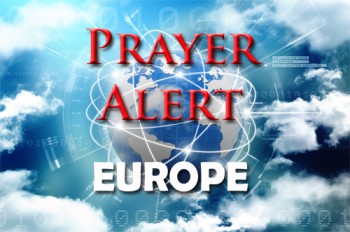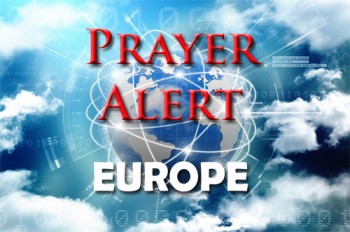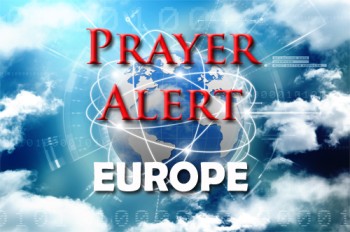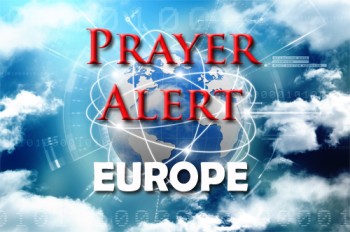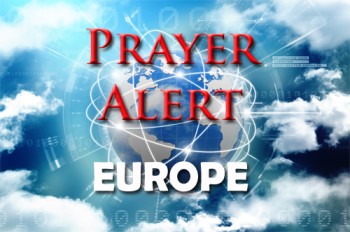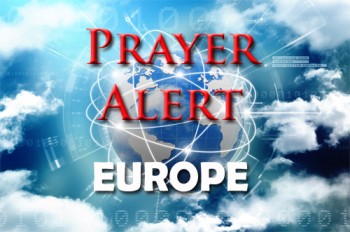Displaying items by tag: Serbia
Serbia: rescue efforts to save livestock trapped on island
An operation is under way to evacuate livestock trapped for days on an island in the River Danube. Last week up to 200 cattle, calves and horses were stranded on Krcedin island, northwest of the capital Belgrade, after water levels swelled, blocking their passage back to shore. Rescuers are now under pressure to save the rest as freezing temperatures and fears of starvation set in. Unseasonably mild weather in the Balkan region in late 2023 led to melting snow that caused water levels to rise sharply. But this week, the balmy weather gave way to snow and freezing temperatures, raising fears for the animals' survival. Evacuation efforts began on 9 January, when some sixty animals were saved. An environmental group said that the cattle were exhausted; some had lost as much as 50 kg of their weight. There would be extra difficulties in rescuing dozens of wild horses, which are not used to human contact except for people bringing them food. Speed has now become of utmost importance, because of the freezing conditions and increasing hunger.
Kosovo: Flare-ups intensify
NATO is deploying 700 additional troops to its peacekeeping mission in Northern Kosovo after clashes with local ethnic Serbian protesters left dozens injured on both sides. Majority-Albanian Kosovo declared independence from Serbia in 2008, but neither Serbia nor ethnic Serbians in Northern Kosovo recognize Kosovo’s independence. Tensions often flare over which government is legitimate. 4,000 NATO troops are keeping the peace as an agreement giving local Serbs autonomy was never implemented. Recent elections in Northern Kosovo were boycotted by the ethnic Serb majority and Kosovo won but Serb protesters prevented leaders' access to their offices until riot police and NATO dispersed them, injuring 30 peacekeepers and 50 protesters. Serbia is on alert to defend ethnic Serbs in Kosovo. Belgrade’s Moscow allies blame Kosovo and the West for the crisis. America and the EU have called for de-escalation.
Serbia: 13-year-old kills nine
There is an awful silence hanging over the steep hill on which Vladislav Ribnikar elementary school sits. On 3 May, a 13-year-old entered the school, armed with two guns, and shot dead eight fellow students and a security guard. Six other children remain in hospital. The school is at the heart of this central Belgrade community, where streams of mourners are arriving, bearing flowers and soft toys. 24 hours after the worst school shooting in Serbian history, pupils from the next-door college stand along the street to stand in silence and remember those killed. ‘I am crushed’, says final-year school student Alex Oborina, 19, beside some of the handwritten notes left on the pavement. ‘We have failed as a society because this is something that should not happen to a 13-year-old. He should not be grabbing a gun and going into his school and shooting his friends.’ Alex seems to echo the sentiment everyone here feels. ‘This is probably the worst thing that has ever happened in my life. We need to use this as a stepping stone to rebuild.’
Serbia: Wagner mercenaries recruiting for Russia
A Wagner mercenaries Serbian-language video showing Serb volunteers training to fight alongside Russian troops in Ukraine has outraged Serbia's president Vucic. He said, ‘Why do you, Wagner, call Serbians when you know it is against our rules?’ So far, Serbia has prioritised Russian friendship over ambitions to join the EU, but now Belgrade lawyers and anti-war groups have filed criminal complaints against Russia’s ambassador and Serbia's state security and information agency for recruiting Serbians for Wagner. Vucic said, ‘Serbia’s path is towards the West, not towards invading Ukraine. Serbia consistently voted in favour of resolutions at the UN, condemning Russian hostility.’ That stance does not impress MEPs because Serbia refuses to impose sanctions on Russia. MEPs have called for ending Serbia membership negotiations until they agree to sanctions and forego cheap Gazprom gas from Russia.
Bosnia: Serb leader stirs talk of war
Bosnia has three presidents. Each one represents a particular ethnic group, and the fragile multiethnic government faces its greatest crisis since the Balkan wars. Serb nationalist leader Milorad Dodik is threatening to tear Bosnia apart by withdrawing the Serb territory he leads from Bosnia. He has stopped meeting the other regional presidents and vowed to withdraw from the armed forces and tax agency in favor of his own agencies. Political rivals and foreign diplomats say recent scandals suggest his rhetoric is to deflect corruption allegations. But in a region where the war shadow is everywhere, Bosnians fear their country’s peace is threatened. ‘It will not be peaceful,’ warned Sefik Dzaferovic, one of the three presidents. An opposition party leader said, ‘He hates stability because he then has to explain why we are living like we do. He plays on people's emotions regardless of the consequences.’ The UN called it ‘the greatest threat’ to Bosnia’s survival since 1990.
Serbia and Kosovo leaders to hold reconciliation talks
The leaders of Serbia and Kosovo will meet imminently to restart the EU-brokered dialogue that would normalise relations and put both nations on a path to European Union membership. The date for a meeting will be announced shortly by the EU's foreign policy chief. The dialogue is the only path to membership of the European Union for both nations. Talks began a decade ago but have stalled in recent years. A change of government and a new prime minister with a strong political mandate in Pristina has increased the chances of successful talks between the two neighbours. In February Albin Kurti was elected in a landslide victory and has repeatedly said he wanted a full apology from Serbia for its actions during the 1998-99 conflict, which led to the displacement of a million Kosovars and at least 20,000 deaths. The politicians may make many public statements, but what really matters is what is said in discussions.
